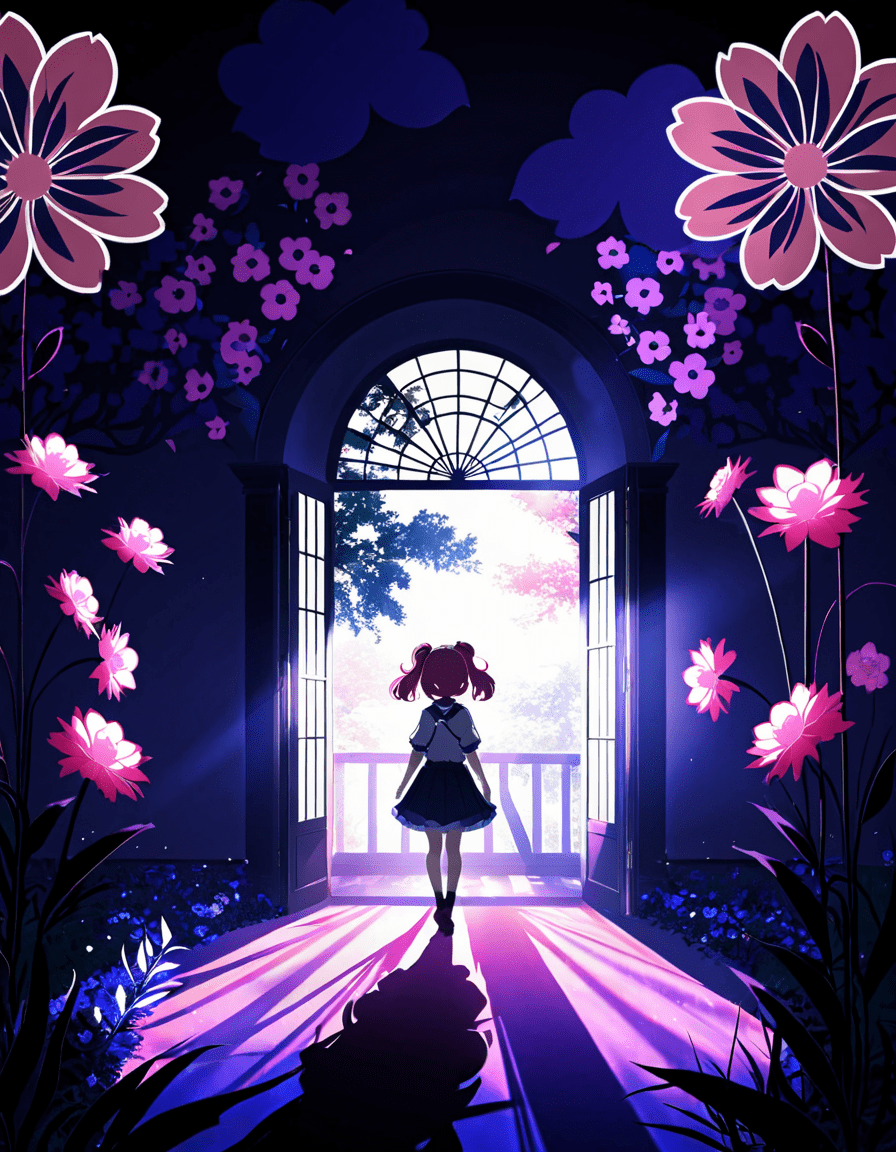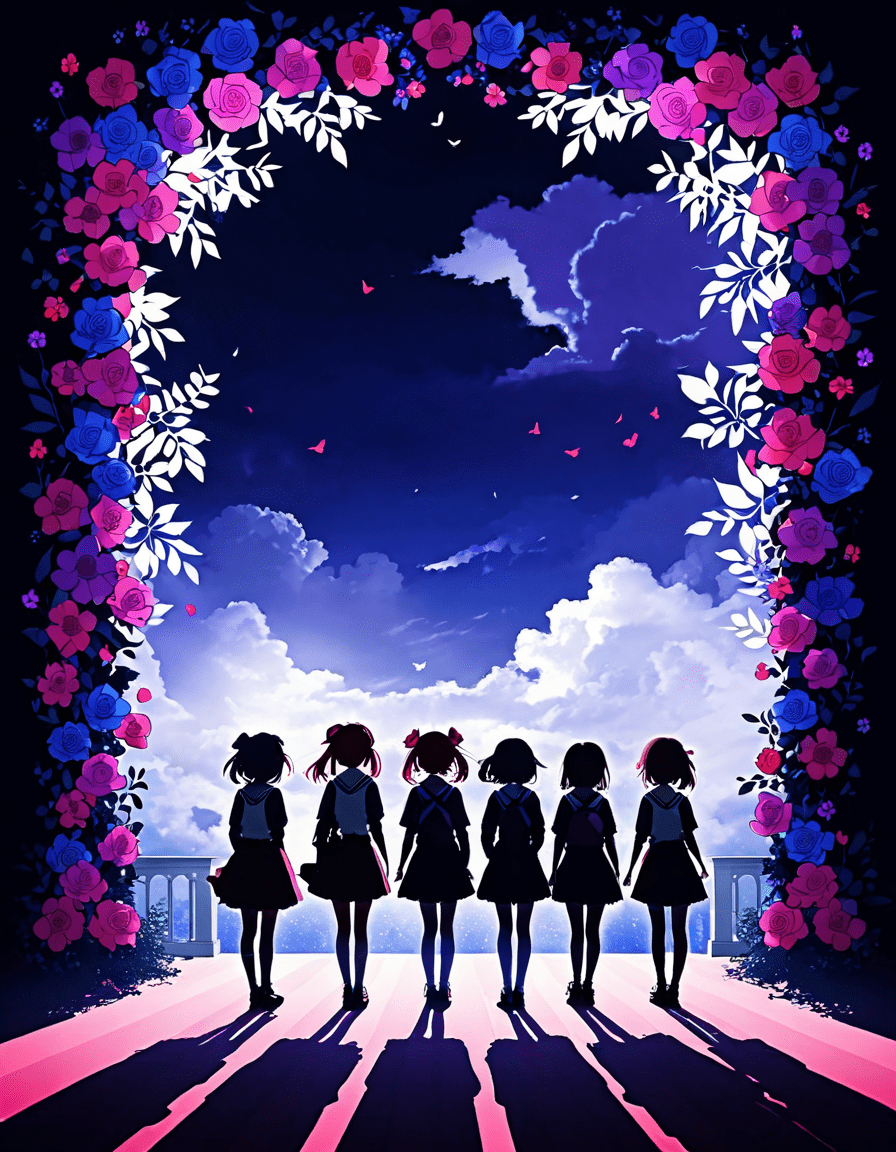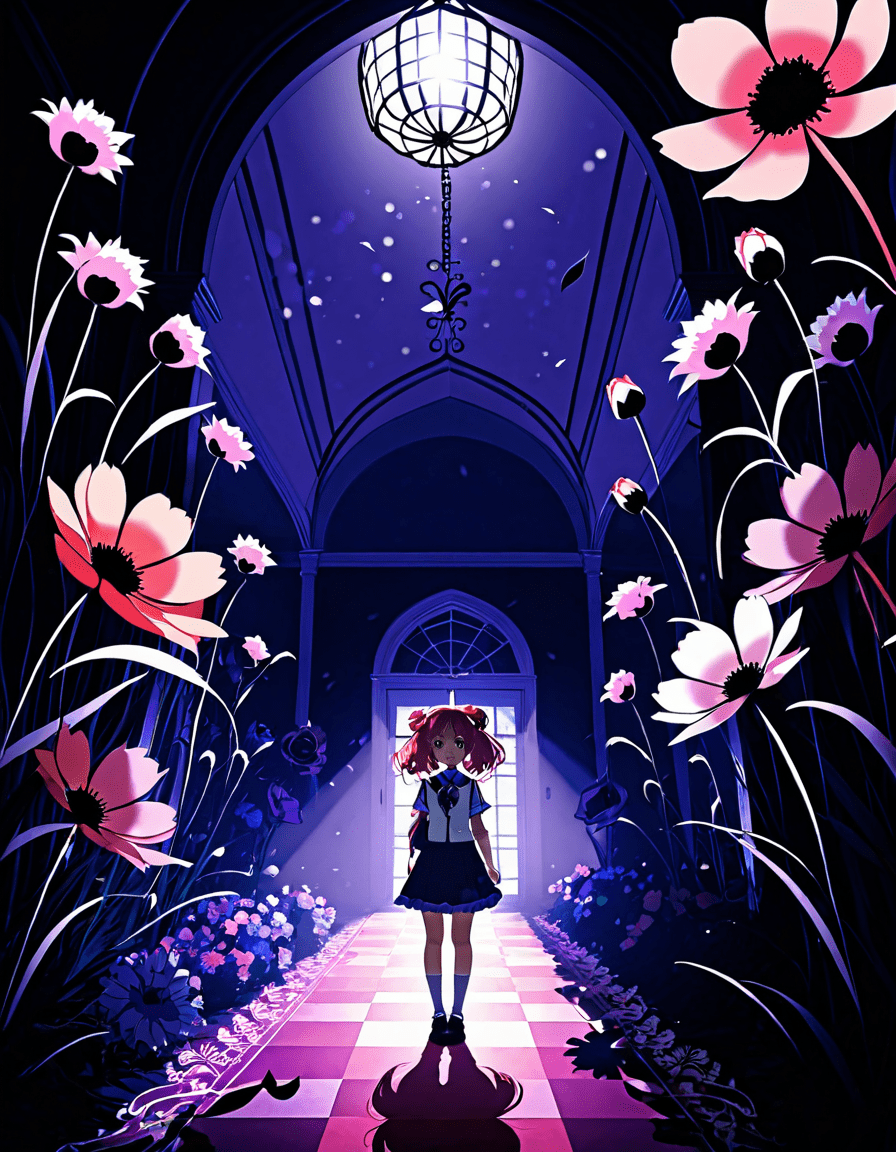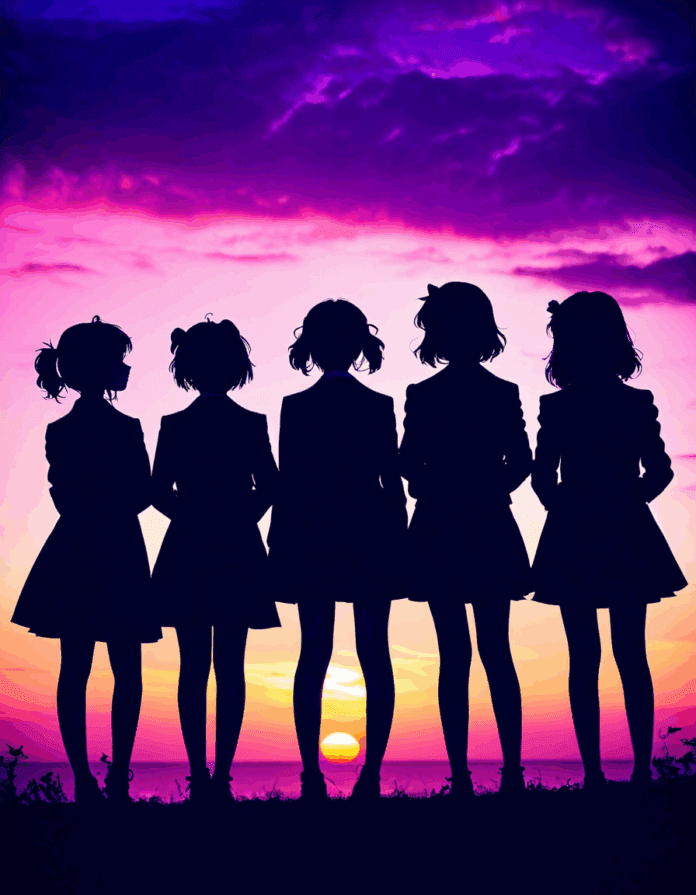The landscape of video games has seen a remarkable transformation over the years, introducing titles that challenge what players expect. One such indie gem that’s stirred up quite the buzz is Doki Doki Literature Club. Originally released in 2017, this game has firmly established itself in the gaming hall of fame for its engaging story and jaw-dropping themes. With a cute persona that disguises shocking twists and deep secrets, Doki Doki Literature Club is far more than your average dating simulator.
Now, let’s dive into the spine-chilling twists that Doki Doki Literature Club serves up, leaving players slack-jawed and heart racing. The game artfully blends charming visuals with haunting undertones, challenging players to confront uncomfortable truths. Let’s explore the darker side of this seemingly innocent game.

7 Dark Twists in Doki Doki Literature Club That Left Players Speechless
Picture this: a character who knows she’s in a game. Monika, the self-aware protagonist, skillfully bends the entire narrative to her will. Her ability to erase other characters leaves you questioning the essence of free will in gaming. Monika’s descent into obsession makes her both a compelling and chilling figure within the storyline.
When you start romancing Yuri, her layers unfold. On the surface, she’s a shy book lover, but beneath lies an intense obsession that spirals into horror. With themes of self-harm and anxiety, Yuri’s character provides a stark representation of mental health struggles. It’s raw, emotional, and profoundly unsettling.
Sayori, the bubbly childhood friend, faces a heartbreaking fate that flips the game on its head. Her battle with depression reaches a devastating climax when she takes her own life. This pivotal moment doesn’t just shock players; it forces a candid conversation about mental health issues that many often shy away from. It hits hard and stays with you long after you’ve finished playing.
Doki Doki Literature Club is a masterclass in subverting the dating sim experience. You start with the typical flirty banter and poetic exchanges, only to be plunged into a psychological horror landscape. It critiques common tropes found in romance games with razor-sharp precision while engaging players in a thought-provoking dialogue about genre norms.
Ever felt like the game is talking to you—you know, personally? Monika’s direct engagement with the player blurs the lines between fiction and reality. This unique relationship creates an uncomfortable but fascinating dialogue that elevates the overall experience.
Poetry in Doki Doki Literature Club is pivotal for character expression, yet it masks darker truths. Seemingly innocent verses hide a turbulent undercurrent of despair and longing. The poetic elements serve to deepen players’ understanding of characters, enhancing the emotional resonance of the story.
Unlike typical games, Doki Doki Literature Club offers multiple routes and endings that hang on players’ choices, forcing them to introspect. The decision to delete Monika brings an unsettling climax, urging players to reflect on choice and consequence rather than pursuing a straightforward victory.

Exploring the Impact of Doki Doki Literature Club on Gaming Culture
Doki Doki Literature Club emerges as a beacon for exploring psychological depth within gaming. The heady mix of adorable aesthetics and horror echoes films like Kiki’s Delivery Service, where charming narratives cloak deeper complexities. Yet, where Kiki invites comfort, Doki Doki Literature Club shoves you into discomfort, prompting discussions about the boundaries of mental health portrayal in gaming.
This game doesn’t just exist to shock; it redefines player engagement in a community often saturated with clichés. Actors like Suki Waterhouse, known for her deep character portrayals, would appreciate how the game challenges expectations and dives into dark territories. Just as she pushes boundaries in her roles, Doki Doki Literature Club offers a rich commentary on psychological themes often underrepresented in interactive media.
The game’s impact transcends its horrendous shocks; it crafts a narrative that pushes for dialogue on mental health, player choices, and genre manipulation. Through stunning visuals and troubling themes, Doki Doki Literature Club captures the essence of contradiction—reminding us there’s often much more lurking beneath a cheerful exterior. As the gaming world continues to evolve and innovate, Doki Doki Literature Club stands tall, paving the way for future creators to take those daunting leaps into the unknown.
In the end, whether you’re just exploring the whimsical side of gaming or diving deep into complex narratives, there’s something thought-provoking in Doki Doki Literature Club. Just like the spectral echoes of Hank Williams music linger, so too will the haunting narratives within this game. With such profound commentary woven into its fabric, it invites players to not just engage with the game, but to reflect, discuss, and, ultimately, grow from the experience. Experiences like these are what fuel the evolution of video games, seeking to entertain while promising to challenge and provoke.
As you set out to explore captivating titles, Doki Doki Literature Club deserves a place on your list. It’s not every day you stumble upon a game that both entertains and confronts its players with the intricacies of mental health and self-awareness. If you’re intrigued to dig into a gaming experience that’s anything but ordinary, strap in—this game is a wild ride!
Doki Doki Literature Club: Shocking Trivia and Intriguing Facts
Unexpected Inspirations and Influences
Did you know that the idea for doki doki literature club was born from a mix of anime tropes and psychological horror? The game’s creator, Dan Salvato, was inspired by various facets of pop culture, including classic horror films and, believe it or not, unexpected characters from literature. This mash-up is part of what keeps players on their toes—just like the unexpected twist in a film influenced by heavyweights like Lewis Strauss. Speaking of inspirations, you might recognize familiar names among characters, which draw parallels to real famous people people in literature and cinema. For instance, Monika bears striking similarities to the archetypal “perfect girl” seen in various media, subtly poking fun at romantic tropes.
The Dark Side of Literature
As players venture deeper into doki doki literature club, it becomes clear that the game isn’t just about cute poems and sweet friendships. The shocking twists make you rethink your assumptions in a manner akin to the unpredictable nature of the Joker, whose layered personality has been explored in films like those depicting the joker costume. Additionally, as you navigate the storyline, you might find some of the game’s mechanics reminiscent of a film script by Fandango J Michael cline, which reveals deeper psychological themes wrapped in seemingly innocent setups. Those layers lead players to moments where the charm of the literature circle quickly fades, showcasing how appearances can be deceiving.
Making an Impact
What makes doki doki literature club resonate with so many players? It tackles challenging themes, reflecting societal issues that players are all too familiar with. Just like the varied subject of Anchorman, the game takes a lighthearted setup and dives into deeper insights about relationships and mental health. Players often recall their own experiences when encountering themes of love, depression, or even the necessity for tattoo removal before And after life-changing events, with the game’s shocking revelations sparking a dialog about personal experiences. Furthermore, its marketing strategy relied heavily on social media, similar to how successful films leverage platforms to engage audiences—an approach often seen in promoting H2o content.
In essence, doki doki literature club invites you not just to play but to reflect, question, and ultimately, connect deeply with the storyline. Its clever juxtaposition of light-hearted themes and dark secrets makes every playthrough a memorable experience, leaving an imprint that many fans still discuss today. Just like a visit to the Courtyard New york Manhattan Midtown east, where the ambiance feels comforting yet hints at undisclosed stories, this game serves as a reminder that you can’t judge a book—or a visual novel—by its cover.




